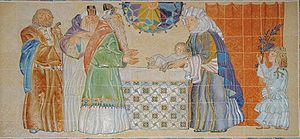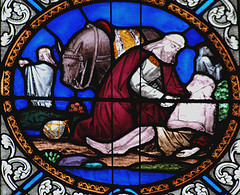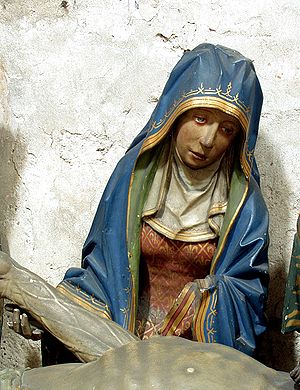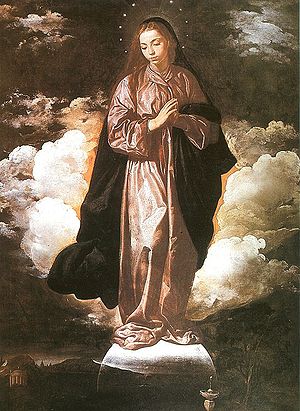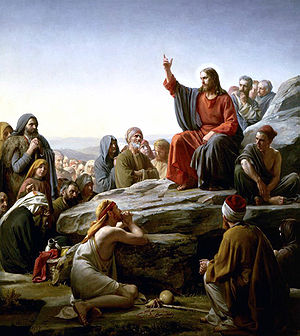I discuss how the Gospel of Luke relates to the Fourth Joyful Mystery of the rosary and how persistance makes us spiritually stronger.
Today’s Gospel contained many homilies-worth of themes. You have Jesus teaching His apostles how to pray in which He gives them the “Our Father.” Jesus also discusses the idea of persistance when trying to obtain graces from God through a parable of a man trying to get bread from his neighbor. I find one passage particularly interesting:
I tell you, if the man does not get up and give it to him for friendship’s sake, persistence will make him get up and give his friend all he wants (Luke 11:8).
I tried to think about what rosary mystery applies to this week’s Gospel. What mystery deals with the idea of persistance and also asking God for direction, strength, and grace?
I can’t think of a better example of persistance than Simeon waiting for the Son of God and finally seeing Jesus at The Presentation in the Temple. Simeon came to the temple every day hoping to see the Messiah. And every day he came back unfulfilled until the day he died after seeing the baby Jesus. Simeon never gave up or lost faith. Chances are people ridiculed him and labeled him as the crazy man who is waiting to see the Son of God. But despite never seeing the Lord until his dying day, Simeon lived according to God’s plan for him which ultimately led him to Heaven.
How easy is it for us to lose faith when we think God does not answer our prayers, sacrifices, and good works? Would anyone have blamed Simeon if he gave up after a few years of disappointment at the temple? Our human nature wants God to immediately reward us for good actions and punish those who are bad. We often ask ourselves, “why me?” when confronted with hardship. However, while we may not know it, God is doing us a favor by not immediately answering our prayers or answering them in unexpected ways. It is that perceived silence which builds a longing for grace. That longing leads to persistance and that persistance builds spiritual strength.
If God immediately gave us everything we wanted we would never build up spiritual muscle for life’s obstacles. We would become so weak spiritually that the slightest difficulty would knock us down and keep us down. But our perseverance builds strength. Constantly working to live in a state of grace builds our resistance to evil and sin. To use a gardening analogy, getting everything we want is like over watering a plant. The plant does not develop a strong root structure and cannot survive under stressful conditions. A little stress and some challenges really help us develop strong spiritual roots.
When we pray the Fourth Joyful Mystery may we remember to show the same level of persistance as Simeon. Remember, God does hear our prayers and answers them accordingly. In Luke’s Gospel, Jesus says that when we ask, God will answer. It may not be in the way we would like or it may lead us down a difficult road, but God answers our prayers in the way that will ultimately lead us to Heaven. And at the end of the day, that is all that really matters.
Related articles by Zemanta
- Two Teachings on Prayer from The Lord (adw.org)
- Homily for July 25, 2010: 17th Sunday in Ordinary Time (beliefnet.com)


